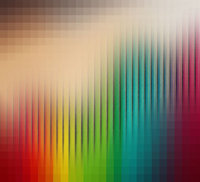
I have always been fascinated by our relationship with the inanimate world around us. We try to hold ourselves spiritually above the physical world yet there are many times where Chazal demand of us to relate to what is around us. Just as an example, there are many blessings recited upon seeing natural phenomena. Certain inanimate objects require us to say a blessing upon them.
It is equally fascinating to read in this week's parsha, Parshat Vaeira, that Moshe, the human who reached the highest spiritual level ever achieved by man, was not above an emotional connection to the physical and even inanimate world. When it was time to bring the plagues upon the Egyptians, Moshe, who had been carefully chosen for this task was not the one to bring all of the plagues. The first plague, for instance, Blood, was brought by Aharon, Moshe's brother.1 Rashi points out that Moshe was not chosen for this task because this same river that he was to smite had protected him and effectively saved his life as a baby and therefore, the river was not smitten by him but rather by Aharon. In that case, why should Aharon have been allowed to hit the river? He too should have been forbidden because of his connection to Moshe?! The difference is that Aharon did not have a direct connection with the river. Moshe did.
Could not the great Moshe have risen above that? Rabbi Eliyahu Dessler, the 20th century sage, writes that in fact he could not. Even Moshe would be affected by such a violent act against an object which helped save his life, even though the water in front of him now was definitely not the same water which saved him! That water may be half the way around the world - after all, it was 80 years later.2 And it's not as if the water did anything proactive to help. Yet, the water helped him in his service of God. For Moshe, hitting the water would definitely have affected him. What profound an affect it would have to smite something that helped him in such a life-saving situation!3
The emotional bond connecting us with inanimate objects is fascinating. Whether a favorite pen, the broken plate from the Tnaim ceremony, a wedding ring, gifts received at emotional moments or just because someone wanted to show their appreciation. Or even your favorite coffee cup. From the highly emotional to the banal. We have emotional connections to things. It is true that in circumstances such as the Holocaust where everything is taken from you, you learn to adapt.4 But there is still that bond we have. Upon buying new and expensive items one is even required to make a bracha.5 Jacob endangered himself to retrieve some small items that had been left behind even though he was quite wealthy and didnt really didn't need them.6
We do not necessarily need these items. Let us be grateful for what we have and use those items to enhance our experience here.
*Click here to read another logoParsha post on Vaeira.
Footnotes
- Shemot 7:19
- Moshe was a 3 month old when placed in the river and the Torah tells us that he was 80 when he came back to Egypt to take the Children of Israel out. Shemot 7:7
- Michtav me-Eliyahu volume 3, pp.100-1.
- Viktor Frankl describes this situation and his own adaptation to this circumstance in his book, Man's Search for Meaning p.27
- Orach Chayim 223:3-6
- Rashi - Bereishit 32:25
My thanks to Rabbi Shlomo Jarcaig whose article pointed me towards Rabbi Dessler.
For more information on logotherapy and how it helps to create a fuller, more meaningful life, or to book an online session,
- call me at +972-54-589-3399,
- email me at a[email protected] or
- contact me thru my site.
If you mention frumtherapist, you get a 10% discount.
Have A Great Shabbat!![]()
For More Information On Logotherapy And How You Can Create A Fuller, More Meaningful Life, Or To Book An Online Session,
- Call Me At +972-54-589-3399, or in Israel 054-5893399
- Contact Me Thru my email at [email protected]

 Previous
Previous

